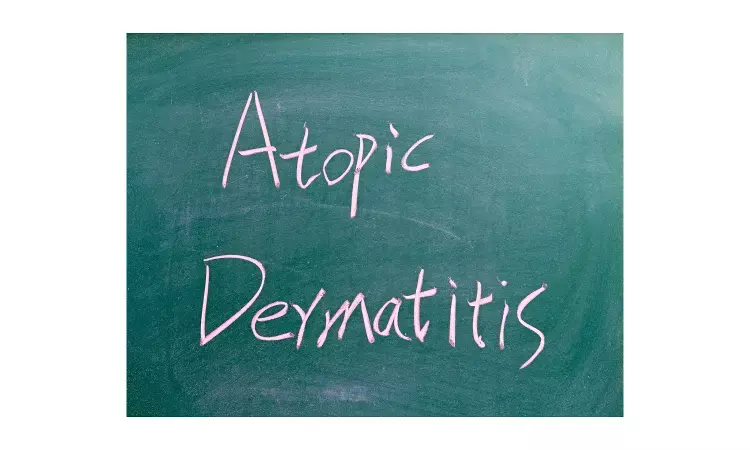- Home
- Medical news & Guidelines
- Anesthesiology
- Cardiology and CTVS
- Critical Care
- Dentistry
- Dermatology
- Diabetes and Endocrinology
- ENT
- Gastroenterology
- Medicine
- Nephrology
- Neurology
- Obstretics-Gynaecology
- Oncology
- Ophthalmology
- Orthopaedics
- Pediatrics-Neonatology
- Psychiatry
- Pulmonology
- Radiology
- Surgery
- Urology
- Laboratory Medicine
- Diet
- Nursing
- Paramedical
- Physiotherapy
- Health news
- Fact Check
- Bone Health Fact Check
- Brain Health Fact Check
- Cancer Related Fact Check
- Child Care Fact Check
- Dental and oral health fact check
- Diabetes and metabolic health fact check
- Diet and Nutrition Fact Check
- Eye and ENT Care Fact Check
- Fitness fact check
- Gut health fact check
- Heart health fact check
- Kidney health fact check
- Medical education fact check
- Men's health fact check
- Respiratory fact check
- Skin and hair care fact check
- Vaccine and Immunization fact check
- Women's health fact check
- AYUSH
- State News
- Andaman and Nicobar Islands
- Andhra Pradesh
- Arunachal Pradesh
- Assam
- Bihar
- Chandigarh
- Chattisgarh
- Dadra and Nagar Haveli
- Daman and Diu
- Delhi
- Goa
- Gujarat
- Haryana
- Himachal Pradesh
- Jammu & Kashmir
- Jharkhand
- Karnataka
- Kerala
- Ladakh
- Lakshadweep
- Madhya Pradesh
- Maharashtra
- Manipur
- Meghalaya
- Mizoram
- Nagaland
- Odisha
- Puducherry
- Punjab
- Rajasthan
- Sikkim
- Tamil Nadu
- Telangana
- Tripura
- Uttar Pradesh
- Uttrakhand
- West Bengal
- Medical Education
- Industry
Tralokinumab plus topical corticosteroids effective in severe atopic dermatitis

Atopic dermatitis (AD), is a common chronic or recurrent inflammatory skin disease and affects 15-20% of children and 1-3% of adults worldwide. Cyclosporine A (CSA) is a popularly used in AD, but treatment with CSA has potentially serious adverse effects. A phase 3 trial Capsinoids plus topical corticosteroids (TCS) as needed provided early and sustained improvements in AD signs and symptoms.
A randomized trial by J. Gutermuth and team revealed that tralokinumab 300 mg plus topical corticosteroids as needed was effective and well tolerated in patients with severe AD not adequately controlled with oral corticosteroids or who had contraindications to them.
The findings of the study are published in British Journal of Dermatology.
The objective of the study was to evaluate the efficacy and safety of tralokinumab plus TCS in adult patients with severe AD, whose disease was not adequately controlled with or who had contraindications to oral CSA.
The study was a 26-week, multicenter, parallel, randomized, double-blind, placebo-controlled, Phase 3 trial, European adults with severe AD were randomized 1:1 to subcutaneous tralokinumab 300 mg or placebo every 2 weeks plus TCS as needed. The primary endpoint was a 75% improvement in Eczema Area and Severity Index (EASI-75) at Week 16.
The results of the study were
• A total of 277 patients were randomized. At Week 16, more patients treated with tralokinumab plus TCS vs placebo plus TCS achieved EASI-75 (64.2% vs 50.5%; difference [95% confidence interval] 14.1% [2.5-25.7]; P=0.018), which increased further up to Week 26.
• Improvements in AD severity were accompanied by early improvements in patient-reported outcomes, including Dermatology Life Quality Index, Patient-Oriented Eczema Measure, pruritus, and sleep interference.
• Tralokinumab plus TCS also showed a higher EASI-75 response at Week 16 among patients who had previously failed CSA therapy vs placebo plus TCS (57% vs 41%).
• The overall incidence of adverse events was similar between treatment arms.
Gutermuth and team concluded that "Tralokinumab 300 mg plus TCS as needed was effective and well tolerated in patients with severe AD not adequately controlled with, or who had contraindications to, oral CSA."
Reference: https://doi.org/10.1111/bjd.20832
Medical Dialogues consists of a team of passionate medical/scientific writers, led by doctors and healthcare researchers. Our team efforts to bring you updated and timely news about the important happenings of the medical and healthcare sector. Our editorial team can be reached at editorial@medicaldialogues.in.
Dr Kamal Kant Kohli-MBBS, DTCD- a chest specialist with more than 30 years of practice and a flair for writing clinical articles, Dr Kamal Kant Kohli joined Medical Dialogues as a Chief Editor of Medical News. Besides writing articles, as an editor, he proofreads and verifies all the medical content published on Medical Dialogues including those coming from journals, studies,medical conferences,guidelines etc. Email: drkohli@medicaldialogues.in. Contact no. 011-43720751


